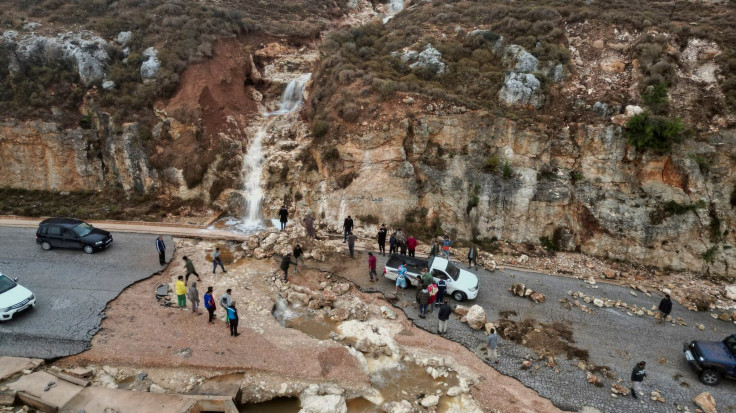Human-Induced Climate Change Blamed For Fatal Libya Floods
A World Weather Attribution report declares that human-induced climate change caused Libya to be 50 times more likely to experience an extreme weather event.

Members of the World Weather Attribution have blamed the current state of the climate for the extreme flooding that killed at least 3,950 people in Libya last week.
The UN has revealed that after the extreme weather conditions, dubbed "Storm Daniel", more than 9,000 people remain missing and at least 40,000 people have been displaced in eastern Libya. The heavy rainfall caused the borders of two dams to burst, which inherently led to tsunami-like flooding in the Libyan city of Derna.
The catastrophic incident exceeded the magnitude of any other extreme weather events on record in Libya.
Prior to the fatal incident in Libya, there were individual severe rain events in parts of the Mediterranean.
Storm Daniel first hit regions of Bulgaria, Spain, Turkey and Greece, killing at least 34 people and leaving thousands of others homeless on its path to North Africa.
The rainfall over Greece and Turkey lasted up to four days, according to the World Weather Attribution report.
The World Weather Attribution report, which was published on 19 September, revealed that the torrential rain that fell in several regions of the Mediterranean was "caused by low-pressure systems forming around a blocking high centred over the Netherlands".
The report also notes that much of the information was documented by researchers in Greece, the USA, the Netherlands, Germany and the UK, who each collaborated on the investigation into how much human-induced climate change altered the extent of the heavy rainfall.
Devastating Libya Floods.#LibyaFloods pic.twitter.com/gCSTjnBXLR
— iOputa Panel (@iOputaPanel) September 12, 2023
The report said: "For the large region including Greece and parts of Bulgaria and Türkiye, we find that human-induced climate change made an event as extreme as the one observed up to 10 times more likely and up to 40 per cent more intense."
Due to the increase in temperatures across the globe, Libya has become 50 times more likely to experience an extreme weather event. Global warming has also intensified temperatures in the country by 50 per cent.
Julie Arrighi, the Director at the Red Cross Red Crescent Climate Centre, told reporters: "This devastating disaster shows how climate change-fueled extreme weather events are combining with human factors to create even bigger impacts, as more people, assets and infrastructure are exposed and vulnerable to flood risks."
The World Weather Attribution report also recognised that "there are multiple reasons we can be confident that climate change did make the events more likely", continuing to note that from past studies "we know that an increase in rainfall intensity of around 10 per cent would be expected given current warming levels".
Prior to Storm Daniel washing part of the country away, Greece was victim to an extreme heatwave and raging wildfires in July 2023. One of the fires, which was caused by human-induced global warming, marked "the largest fires ever recorded in the EU" – the report acknowledged.
"Deforestation and relatively high rates of urbanisation have changed the landscape over time, increasing the number of people and assets exposed to flooding, and reducing stormwater drainage," the report explained.
While the statement declares that it is nearly impossible to blame humans entirely as the direct cause of natural disasters, the World Weather Attribution confirmed that in Libya, "the volume of water and overnight timing of the dam failures meant that anyone in the path of the water was at increased risk, not just those who are typically highly vulnerable".
The poor dam maintenance, armed conflict and lack of political stability in Libya also played a significant role in intensifying the humanitarian disaster.
Looking to the future, the weather health organisation challenged the design and maintenance of certain infrastructures, noting that countries plagued by crises should be provided with necessary resources in the case of a fatal event.
© Copyright IBTimes 2025. All rights reserved.






















